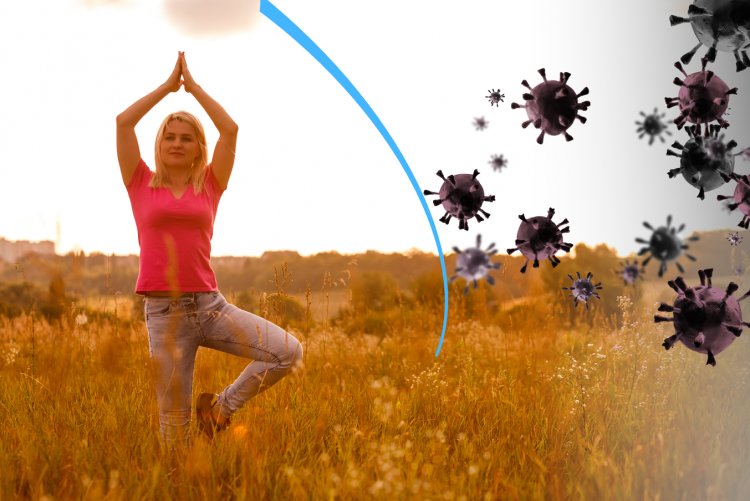The Immune System: A Comprehensive Overview
The immune system stands as the body's defense mechanism, safeguarding against invading pathogens, tumors, and other foreign substances. Its intricate network of cells, tissues, and organs orchestrates a coordinated response to protect the body's integrity. This comprehensive guide delves into the intricate workings of the immune system, elucidating its components, functions, regulation, and significance in maintaining health. #ImmuneSystem #ImmuneResponse #WhiteBloodCells #AntigenRecognition #AutoimmuneDiseases #AdaptiveImmunity #TCellFunction #InnateImmunity #ImmunodeficiencyDisorders #StressImpactOnImmuneSystem

Components of the Immune System
Cells of the Immune System
-
Phagocytes:
- Neutrophils, macrophages, and dendritic cells engulf and digest pathogens through phagocytosis.
-
Lymphocytes:
- T cells, B cells, and natural killer (NK) cells play pivotal roles in adaptive and innate immunity, respectively.
Lymphoid Organs
- Primary Lymphoid Organs:
- The bone marrow and thymus are sites of lymphocyte production and maturation.
- Secondary Lymphoid Organs:
- Lymph nodes, spleen, tonsils, and mucosa-associated lymphoid tissues (MALT) facilitate immune responses by filtering pathogens and promoting interactions between immune cells.
Antibodies and Antigens
-
Antibodies:
- Immunoglobulins produced by plasma cells (mature B cells) in response to specific antigens. They neutralize pathogens, facilitate phagocytosis, and activate complement proteins.
-
Antigens:
- Molecules recognized by antibodies and T cell receptors, including proteins, polysaccharides, and lipids, present on pathogens and foreign substances.
Complement System
A cascade of proteins that enhance immune responses by promoting inflammation, opsonization (coating of pathogens for phagocytosis), and direct lysis of target cells.
Functions of the Immune System
Recognition and Surveillance
- Distinguishing between self and non-self antigens to detect and eliminate pathogens and abnormal cells.
- Continuous surveillance by immune cells to identify and respond to threats.
Response to Infection
- Innate Immunity:
- Immediate, non-specific defense mechanisms such as barriers (skin, mucous membranes), inflammation, and phagocytosis.
- Adaptive Immunity:
- Specific response mediated by T and B cells, characterized by memory and antigen specificity.
Immune Memory
- Generation of memory cells (memory B and T cells) following exposure to pathogens or vaccination, facilitating rapid and enhanced responses upon re-exposure.
Regulation and Modulation
- Tolerance and Self-Tolerance:
- Mechanisms to prevent immune responses against self-antigens, avoiding autoimmune reactions.
- Cytokines and Signaling:
- Interleukins, interferons, and other cytokines orchestrate immune responses by regulating cell communication, differentiation, and activation.
Disorders of the Immune System
Autoimmune Diseases
- Conditions where the immune system mistakenly attacks self-tissues, causing inflammation and tissue damage. Examples include rheumatoid arthritis, type 1 diabetes, and systemic lupus erythematosus (SLE).
Immunodeficiencies
- Primary Immunodeficiencies:
- Genetic disorders resulting in impaired immune function, predisposing individuals to recurrent infections.
- Secondary Immunodeficiencies:
- Arise from factors such as infections (e.g., HIV/AIDS), medications, or medical treatments.
Allergic Disorders
- Hypersensitivity reactions to harmless antigens (allergens) triggering immune responses, leading to symptoms ranging from mild irritation to life-threatening anaphylaxis.
Maintaining Immune Health
Healthy Lifestyle
- Balanced nutrition, regular exercise, stress management, and adequate sleep promote overall immune function.
Vaccination
- Immunization programs stimulate immune responses to specific pathogens, providing protection against infectious diseases.
Hygiene Practices
- Proper hygiene, including handwashing, sanitation, and food safety measures, reduces exposure to pathogens and supports immune health.
The immune system is a remarkable defense mechanism crucial for preserving health and combating infections and diseases. Understanding its complexities and intricacies empowers individuals to take proactive measures in maintaining immune health and well-being. Through research, vaccination, and public health initiatives, society can harness the potential of the immune system to safeguard populations against threats to global health.
Discover Coupoly's exclusive Medical Concierge Service, connecting you with renowned doctors and clinics, whether in the UK or abroad.
Get in Touch
Disclaimer:
The information provided in this article is for educational purposes only and should not be considered medical advice. If you have any health concerns or are experiencing symptoms, it is important to consult with a healthcare professional, such as a doctor or clinic, for proper diagnosis and treatment. Always seek the advice of your doctor or other qualified health provider with any questions you may have regarding a medical condition. Do not disregard professional medical advice or delay in seeking it because of something you have read in this article.
What's Your Reaction?





















